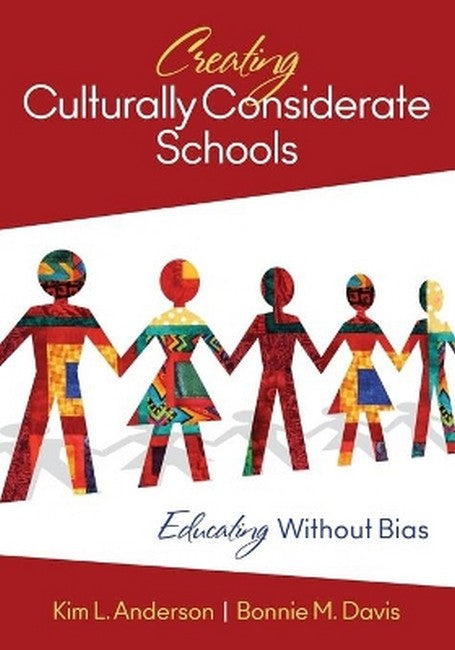Kim L. Anderson's career path has been a diverse and divergent one. Prior to obtaining a graduate degree in social work from Washington University in St. Louis, she was a freelance writer, photographer and graphic artist with interests in "outsider art," expressions of oppression and liberation beyond conventional artistic borders or boundaries. After many years of private practice as a licensed clinical social worker, clinical supervisor and educator, Kim received a post-graduate certificate in art psychotherapy and now is a board certified art therapist. She is the author of Culturally Considerate School Counseling: Helping Without Bias, published by Corwin Press in 2010. Ms. Anderson presents her eclectic work at numerous local, regional and national events and venues, engaging her audience through compelling narrative, careful research, evocative experiences, and instructive storytelling. Read Kim Anderson's blogpost: http://niusileadscape.org/bl/ and follow her on Twitter @kandersonlcsw! Consulting Description Bonnie M. Davis, PhD, is a veteran teacher of more than forty years who is passionate about education. She taught in middle schools, high schools, universities, homeless shelters, and a men's prison. She holds a doctorate in English from St. Louis University and is the recipient of numerous awards, including Teacher of the Year in two public school districts, the Governor's Award for Excellence in Teaching, and the Anti-Defamation League's World of Difference Community Service Award. She has presented at numerous national conferences and currently works in school districts across the country. Dr. Davis' work centers on examining what "we don't know we don't know" about ourselves in order to more effectively teach students who don't look like us. Moving from self reflection to action, her books offer educators culturally responsive, standards-based instructional strategies that bridge culture, language, race, and ethnicity. Dr. Davis's publications include the How to Teach Students Who Don't Look Like You: Culturally Responsive Teaching Strategies(2012);How to Coach Teachers Who Don't Think Like You: Using Literacy Strategies to Coach Across Content Areas (2007); The Biracial and Multiracial Student Experience: A Journey to Racial Literacy(2009); and Creating Culturally Considerate Schools: Educating Without Bias (2012) with coauthor Kim L. Anderson. She is currently working on the Equity 101 Series with Curtin Linton, Executive Vice President of School Improvement Network.
Request Academic Copy
Please copy the ISBN for submitting review copy form
Description
Preface Acknowledgments About the Authors Part I. Culturally Considerate Schools 1. Manner & Methods 2. Model of Cultural Consideration and Equity Skill Building 3. Practical Applications of the Model Part II. Model Phases 4. Self-Examination 5. Reflection 6. Integration 7. Actualization 8. Equity & Social Justice Part III. Educating Without Bias 9. Portraits of Culturally Considerate Educators 10. Landscape of a Culturally Considerate School Part IV. Appendices & Tools Worksheets Resources References Index
"The authors provide a clear and comprehensive model for becoming culturally considerate. The transparent reflections of their journey are refreshing. This book is for the new and seasoned educators, alike. You will walk away with sincere reflections that propel you to face the bias by which we all operate." -- Tiffany Powell-Lambright, Assistant Professor "Creating Culturally Considerate Schools is a thought-provoking resource for pre-service teachers and current practitioners. Its unique approach will captivate the reader's attention." -- Maria Whittemore, Minority Achievement Coordinator "A most unique kind of book that will appeal to the millions of caring teachers that are struggling to understand issues of diversity in a meaningful way. This book will impact how successful teachers can actually be when teaching diverse students." -- William A. Howe, Educational Consultant "This book provides numerous opportunities for teachers' self-reflection on the journey of creating a culturally considerate classroom." -- Deborah L. Misiag, President "I particularly like the book because of the dialogue style. The authors each share their perspectives and help me reflect on the complexities of issues that I deal with. It's so easy to read books that reinforce our worldview, and similarly to reject books that confront us with a different perspective than our own. I thought that this book struck a good balance between the two." -- Graig Meyer, Blue Ribbon Mentor-Advocate

